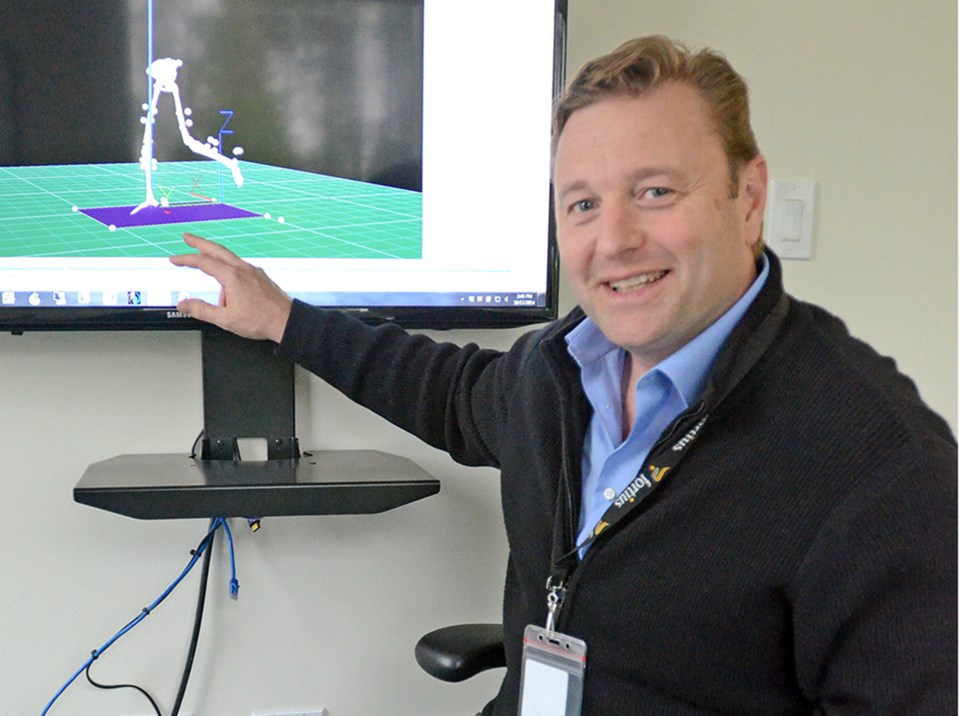Like many of the folks at Fortius Sport & Health, biomechanist Christopher MacLean’s passion for exercise science was sparked by a sports injury.
“I was a hockey player and I got hurt,” MacLean told the NOW.
The quad contusion only took the young MacLean out of the Acadia University lineup for three months, but the interest in sports science has stuck.
The affable Nova Scotia native, known around Fortius as Mack, was already studying sciences when he got hurt, and after the injury he coupled that with exercise science.
He earned his masters degree in human kinetics working with UBC sports medicine legend Dr. Jack Taunton, and followed up with a PhD in biomechanics from the University of Massachusetts Amherst.
He came to Fortius after 23 years in the prescription orthotics industry and time as director of biomechanics at Paris Orthotics in Vancouver.
He had been approached in 2007 by co-founders Rick Celebrini and then-president of SportsMedBC Lynda Cannell about designing the new Fortius lab.
The centre’s vision appealed to him at once.
“The dream has always been to try to bridge what we typically do in university – research, lab research, science – with the clinical aspect and the provision of sport medicine,” he said. “We wanted to integrate the two because so often you’re tucked away in a lab at university, and the work product that comes out of that lab may be published, but it may not actually be entered into practice until 10 or 20 years later. The dream here was to bring it together.”
The dream has also been to make it all accessible to the average Joe, something the centre’s philanthropic model has made possible.
The Fortius Foundation was created in 2004 with a $23 million lead donation from founder and chair Scott Cousens.
That, along with other donations and revenues from tenants in the Fortius building, has allowed the centre to build state-of-the-art facilities, like the lab, and make them available to the general public.
So, on any given day, MacLean might be working with the top marathoners and ultramarathoners in Canada or with a 13-year-old soccer goaltender.
For Mack, that’s as it should be.
“It’s the same math; it’s the same methods,” he said. “That’s the cool part for me because I like taking what we use in sport and taking those attributes and applying them to all.”
twitter.com/CorNaylor



